We have developed solutions that allow us to be more efficient and precise in the discovery of small molecules.
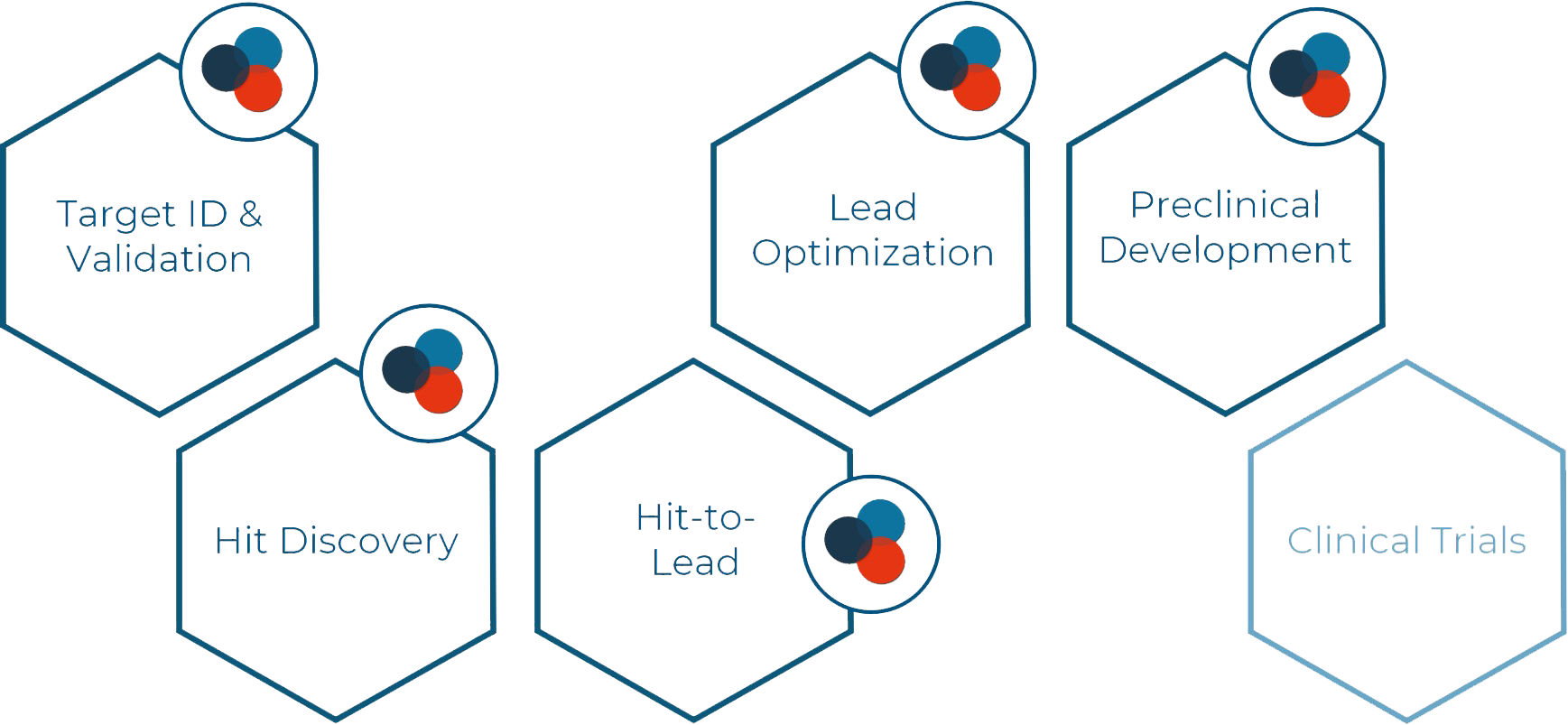
We work in the early stage of the Drug Discovery Value Chain.
From the initial analysis of the Target to the preclinical phase
Target ID & Validation
Using artificial intelligence algorithms, we work on identifying new potential oncological targets.
Thanks to the processing and interconnection of data from various databases, both public and private sources, different omics disciplines are analyzed and associated. In this way, the complex information obtained sheds light on the feasibility of using a specific protein as a key target to inhibit.
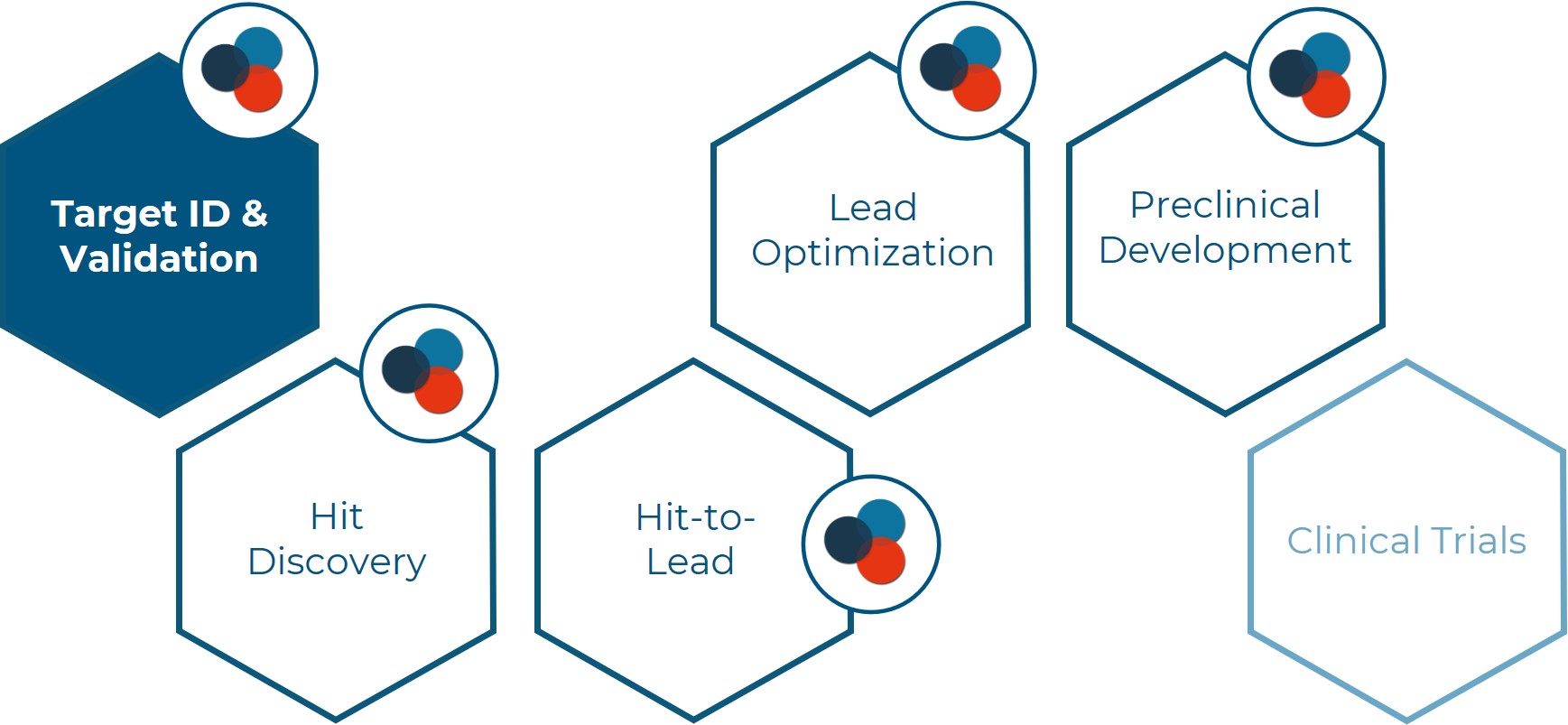
Hit discovery
We found potential hits from extensive libraries containing up to 1B of compounds in a fast way.
We use databases of commercially available compounds, that include up to 1B of chemically diverse compounds with good lead-like properties. This allows us to always work with synthesizable, commercially available compounds.
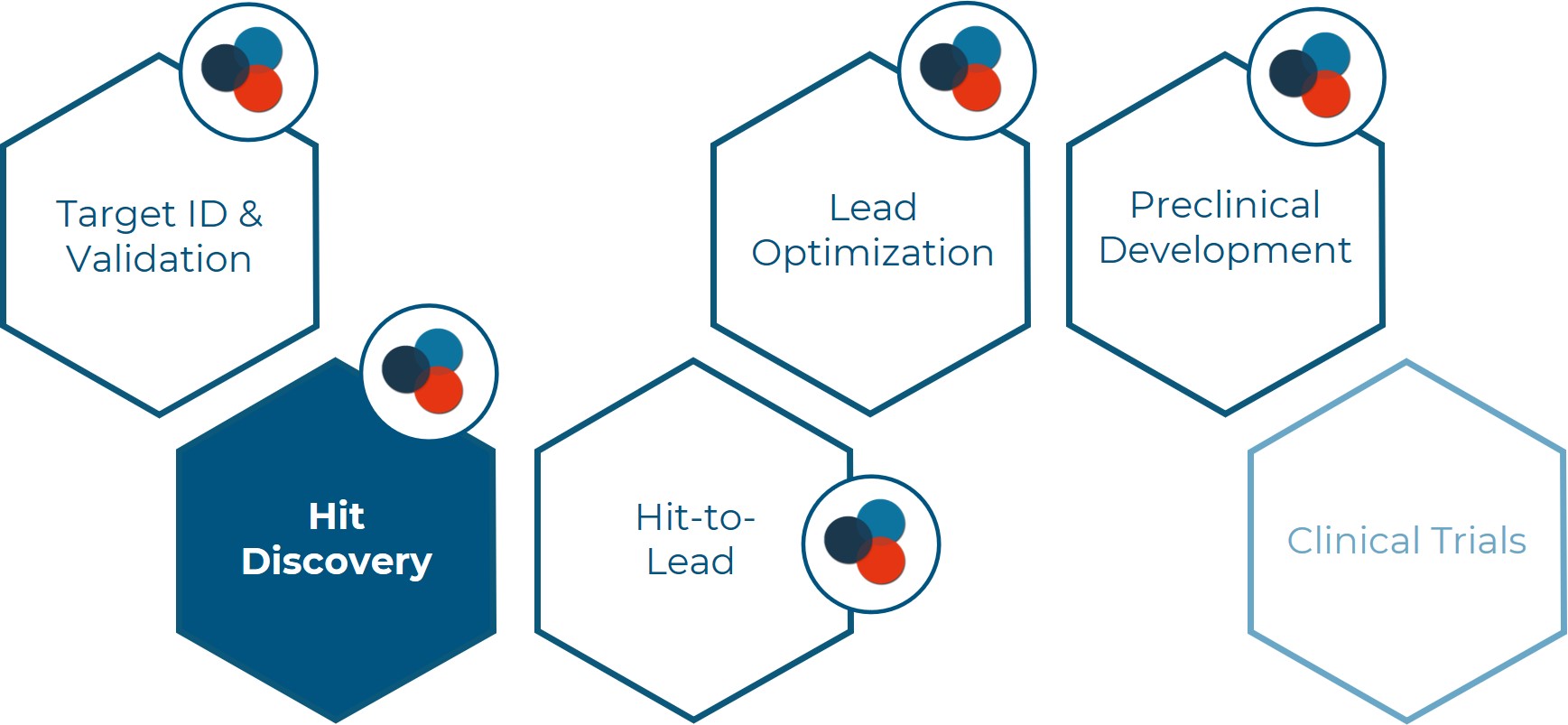
Hit-to-Lead
We sieve the results obtained based exclusively on scientific criteria to eliminate negative results and reduce the number of false positives.
The selection process relies on parameters derived from calculations in physicochemical models, ADMET properties, on/off-target specificity, and potential biological activity. All these elements are integrated into a machine learning (ML) algorithm that assigns weights to each factor, resulting in a final score used to select leads for in vitro testing.
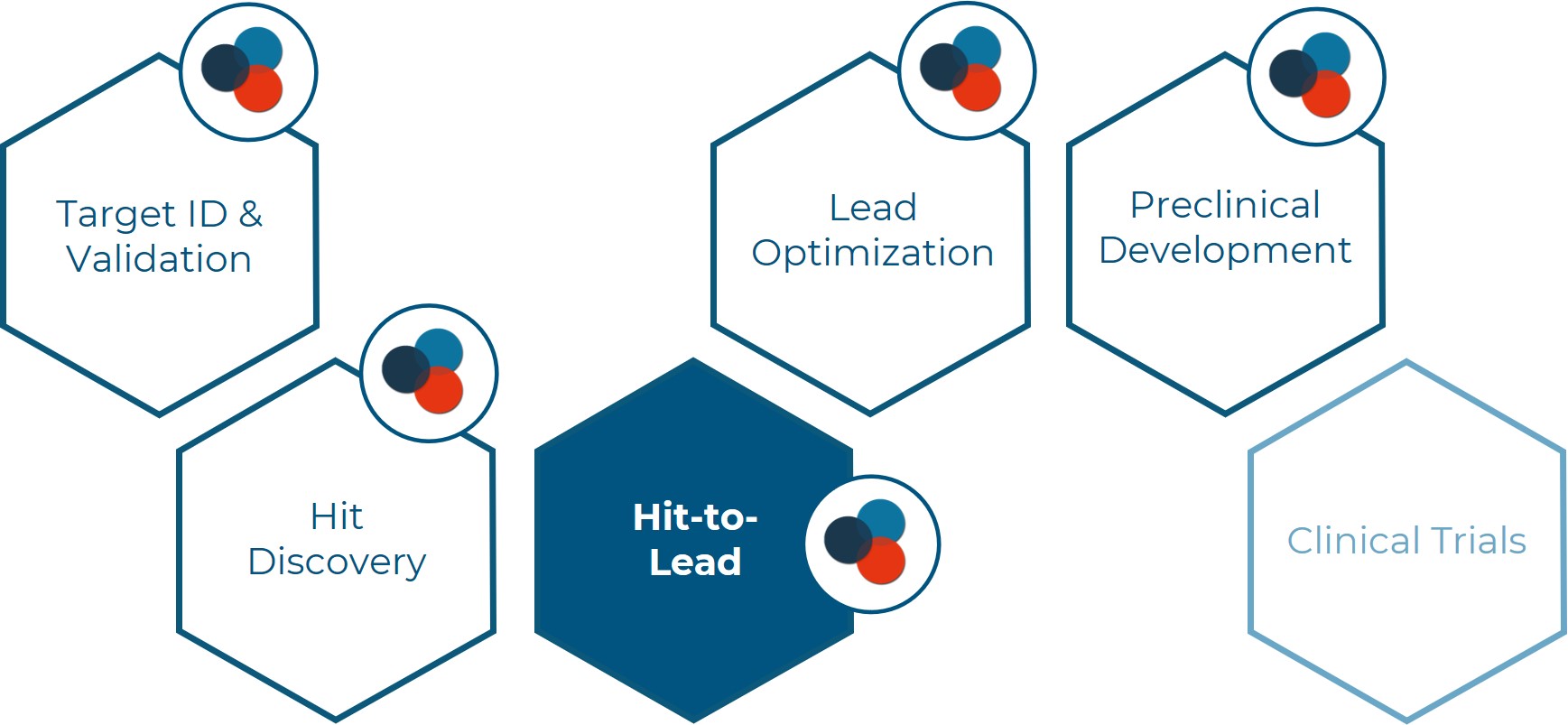
Lead Optimization
We optimize the structure of the selected lead to improve its on-target activity while reducing its off-target interactions.
To do this, a combination of algorithms and high-precision physicochemical models are used, with which small modifications are introduced in the chemical structure of the lead. In an iterative process, different generations of potential drugs that come from the same compound are designed, and their interaction with the target is evaluated. Finally, these designed compounds are synthesized, to evaluate them in experimental assays.
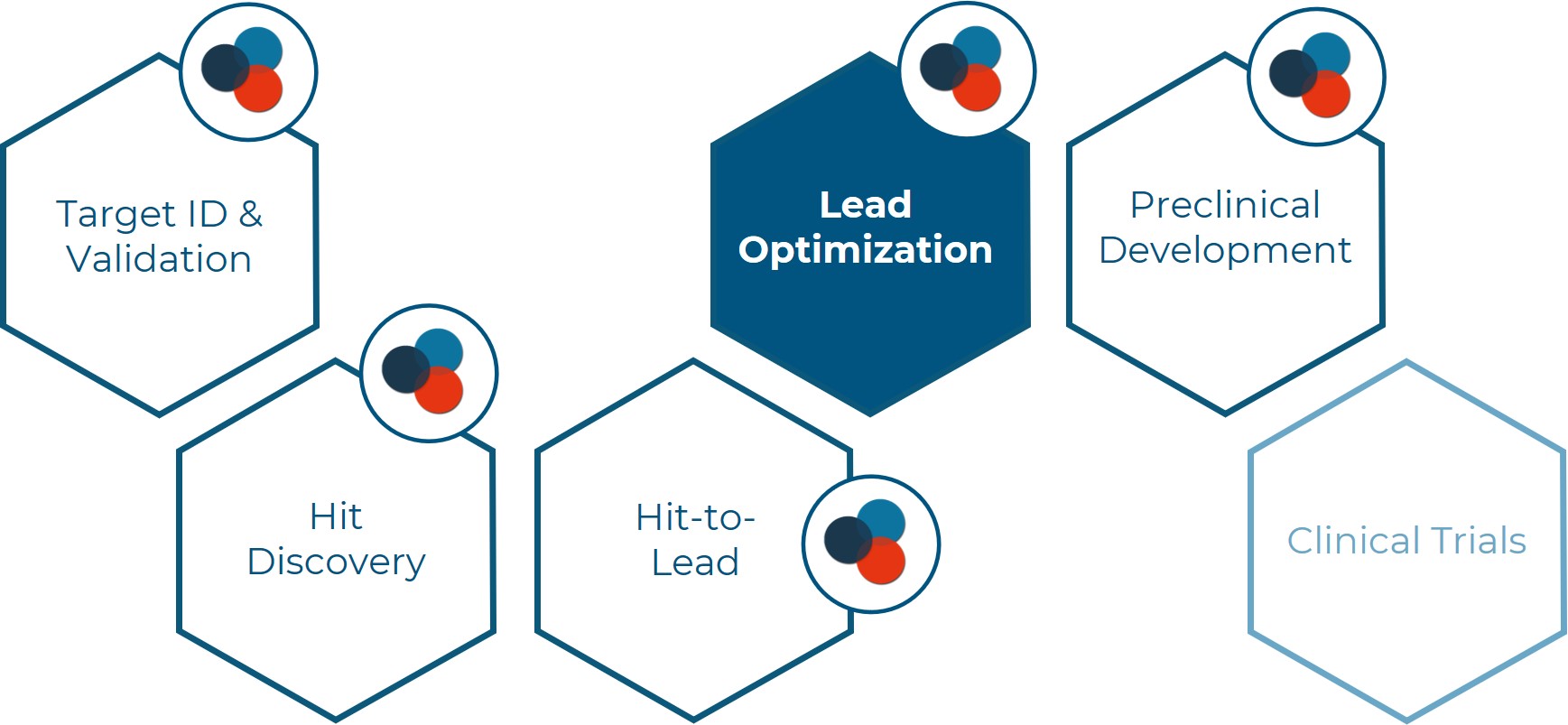
Preclinical Development
Each of the potential leads found in silico is tested in vitro internally, to validate the computational results.
Being experts in carrying out different types of biochemical assays, as well as cellular assays, we can quickly test our progress. In this way, all the experimental results obtained are used to adjust our algorithms, and to launch new compound optimization campaigns guided by feedback.
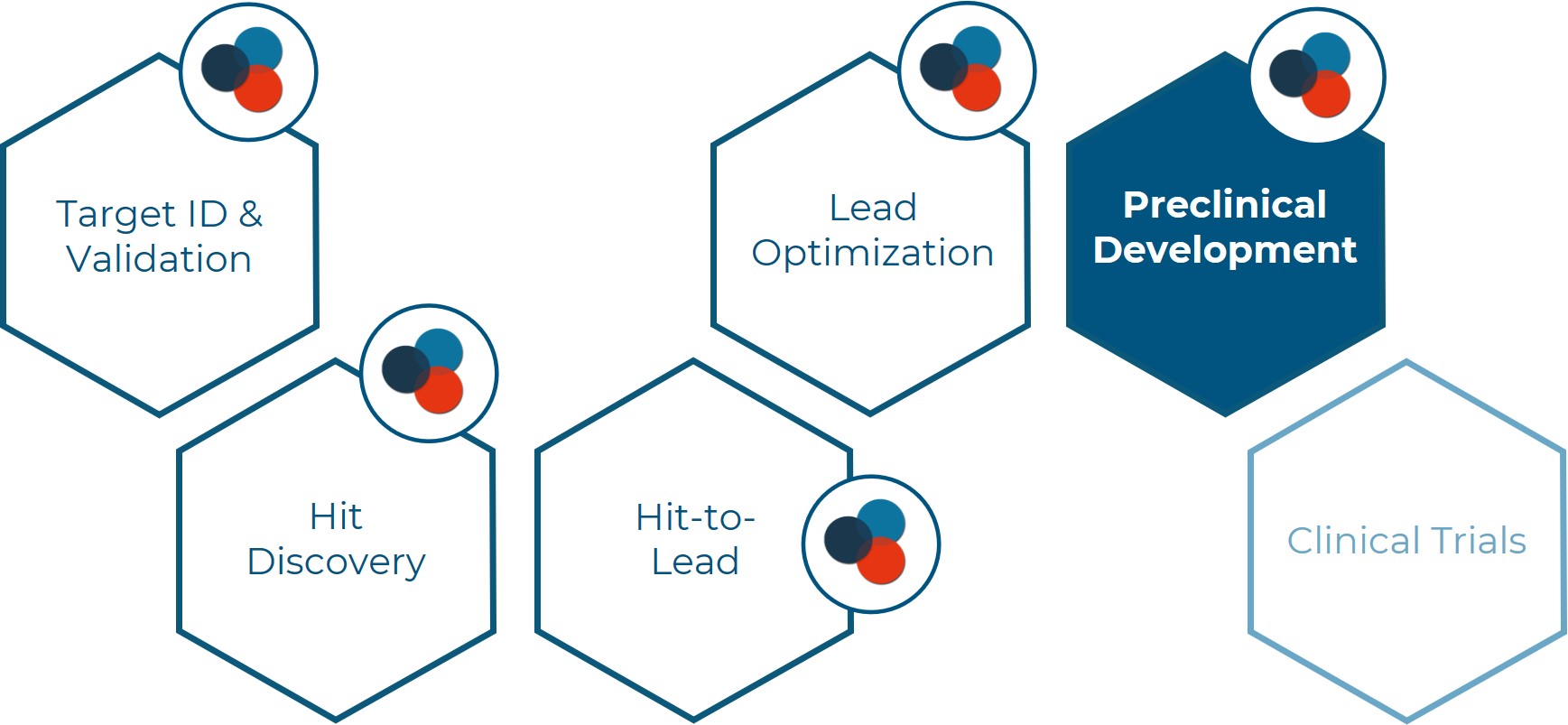
Contact us
We would be happy to talk about science.
